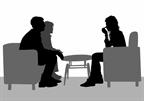Illegal Drug Use Information, Teen
Illegal drugs are chemicals and substances that are illegal to use, sell, or have (
possess). Health care providers and pharmacies do not use or carry these types of drugs to treat medical problems because they can cause serious side effects and can lead to death. Examples of illegal drugs include:
What is drug dependence?
Using illegal drugs often leads to dependence or addiction. When you use certain drugs over a long period of time, your brain chemistry changes so that you can no longer function normally without that drug. This is called drug dependence. Drug dependence can cause you to:
Have unpleasant feelings and physical problems when you stop using the drug (withdrawal).
Be unable to play sports, have hobbies, or perform at work or school the way you used to be able to, without using the drug.
Some drugs make people feel so good that they want to use the drug again and again. This is called drug addiction. People who are addicted spend a lot of time seeking out the drug so that they can get the feeling they want from it. Addiction and dependence can be very hard to overcome.
How can illegal drug use and dependence affect me?
Using an illegal drug only once can have a major impact on your life. It is possible to die from side effects after using a drug just once. If you use an illegal drug repeatedly, you may need to take larger and larger doses of the drug to experience the feelings you want. Drug dependency and addiction may lead to:
Poor performance in sports, school, work, and hobbies.
Withdrawal, if you stop using the drug.
Negative effects on your relationships. It causes others not to trust you. You may avoid or neglect relationships.
Frequent lying and crime, such as stealing to get money for drugs.
Trouble with finances due to using your money for drugs.
Behaving in ways that do not match your values.
Drug addiction can also affect your future by:
Limiting your ability to get a good job or go to college.
Causing long-term health problems, such as tooth loss, skin problems, heart and lung disease, and stomach problems.
- Putting you at risk for:
What actions can I take to avoid illegal drug use?

To avoid using illegal drugs:
Find healthy ways to cope with stress, such as exercise, meditation, or spending time with friends. Talk with a trusted adult or your health care provider about how you feel and how to cope with stress.
Spend time with people who do not use illegal drugs. If your friends use drugs, make new friends who do not use drugs.
Instead of using drugs, do something else, like a game, hobby, or exercise. Find activities that you can do with friends instead of using illegal drugs.
Do not be afraid to say no if someone offers you an illegal drug. Speak up about why you do not want to use drugs. You can be a positive role model for your friends and set a good example for those around you.
Talk with a trusted adult, such as a counselor, teacher, coach, or health care provider, if you or someone you know needs help with drug dependence or addiction.
You can find more information about illegal drug use, dependence, and addiction from:
Your school staff, such as a teacher, nurse, or counselor.
Substance Abuse and Mental Health Services Administration, national helpline: 1-800-662-HELP (4357).
Contact a health care provider if:
-
You use illegal drugs and you want help to change your addictive behavior.
-
You lose interest in things you used to enjoy, like sports or family activities.
-
Your eating or sleeping habits change as a result of drug use.
-
You use medicines or household products to get the same effect as a drug. This is illegal use and can become addictive as well.
-
You stopped illegal drug use previously and you start actively using again (relapse).
If you ever feel like you may hurt yourself or others, or have thoughts about taking your own life, get help right away. Go to your nearest emergency department or:
-
Call your local emergency services (911 in the U.S.).
-
Call a suicide crisis helpline, such as the National Suicide Prevention Lifeline at 1-800-273-8255 or 988 in the U.S. This is open 24 hours a day in the U.S.
-
Text the Crisis Text Line at 741741 (in the U.S.).
Summary
-
Illegal drugs are chemicals and substances that are illegal to use, sell, or possess.
-
Using illegal drugs often leads to dependence or addiction. Addiction and dependence can be very hard to overcome.
-
If you or someone you know uses illegal drugs, find healthy ways to cope with stress and talk to a trusted adult.
This information is not intended to replace advice given to you by your health care provider. Make sure you discuss any questions you have with your health care provider.
 To avoid using illegal drugs:
To avoid using illegal drugs: